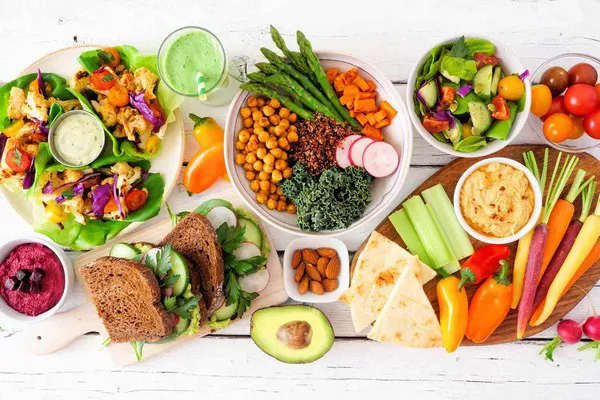Gaining weight, whether for muscle-building purposes or addressing underweight concerns, is a goal that requires careful planning and a focus on proper nutrition. Protein, as one of the essential macronutrients, plays a pivotal role in this journey. In this comprehensive guide, we’ll delve into the importance of protein for weight gain, how much you actually need, and help you embark on a successful weight gain journey.
SEE ALSO: 10 Sources of Protein Effective for Weight Loss
The Significance of Protein in Weight Gain
Protein, often referred to as the body’s building block, serves multiple functions in the context of weight gain:
1. Muscle Building
Protein is essential for the repair and growth of muscle tissues. When you aim to gain weight, this becomes particularly crucial, as it helps ensure that the additional weight you gain consists of lean muscle mass rather than excess fat.
2. Satiety and Appetite Control
Protein-rich foods have been shown to promote feelings of fullness and reduce appetite. This can be advantageous for those who struggle to consume enough calories to gain weight.
3. Energy Source
While carbohydrates are the body’s primary energy source, protein can be converted into energy when needed. This is especially beneficial when increasing calorie intake for weight gain.
SEE ALSO: Protein’s 9 Roles in Enhancing Your Body’s Vital Functions
Determining Your Protein Needs for Weight Gain
The amount of protein you require to gain weight depends on several factors, including your age, gender, activity level, and weight gain goals. Here are some general guidelines to help you estimate your protein needs:
1. Calculate Your Basal Metabolic Rate (BMR)
Your BMR represents the number of calories your body needs at rest to maintain basic functions like breathing and circulation. Various online calculators can help you determine your BMR based on factors like age, gender, height, and weight.
2. Account for Activity Level
Once you have your BMR, factor in your activity level. If you’re sedentary, you’ll need fewer calories and protein than if you engage in regular physical activity or strength training.
3. Set Weight Gain Goals
Determine how much weight you want to gain per week. A safe and sustainable rate is around 0.5 to 1 pound (0.23 to 0.45 kilograms) per week. To achieve this, you’ll need to create a calorie surplus by consuming more calories than you burn.
4. Protein Intake
Protein requirements typically range from 0.8 to 1.2 grams of protein per kilogram of body weight for sedentary individuals. However, for those aiming to gain weight through muscle building, protein intake may increase to 1.2 to 2.2 grams per kilogram of body weight.
5. Do the Math
Multiply your weight gain goal by 7700 calories (the approximate number of calories in 1 kilogram of body weight). This will give you an estimate of how many calories you need to consume beyond your maintenance calories to reach your goal. Ensure that a significant portion of these calories comes from protein.
SEE ALSO: Does Protein Make You Fat? Myths & Exploration
Protein-Rich Foods for Weight Gain
Meeting your protein requirements for weight gain can be a delicious and diverse experience. They not only provide the necessary building blocks for muscle growth and repair but also help you feel full and satisfied. Here’s a closer look at some protein-rich foods that can support your weight gain goals:
1. Lean Meats
Chicken Breast: Skinless, boneless chicken breast is a lean protein powerhouse. It’s low in fat and versatile in cooking, making it a staple for those aiming to gain weight without excessive fat intake.
Turkey: Like chicken, turkey is a lean source of protein. It’s a great option for sandwiches, wraps, and salads.
Lean Beef: Lean cuts of beef, such as sirloin or tenderloin, provide ample protein without excessive saturated fat. They are perfect for those who prefer red meat.
2. Fish
Salmon: Salmon is not only rich in protein but also a fantastic source of heart-healthy omega-3 fatty acids. It’s an excellent choice for both muscle gain and overall health.
Tuna: Canned tuna is a convenient and cost-effective source of protein. It’s great for sandwiches, salads, and pasta dishes.
Tilapia: Tilapia is a mild-flavored fish that’s easy to prepare and rich in protein. It’s a popular choice for those who prefer a milder fish taste.
SEE ALSO: 6 Kinds of Fishes Highest in Protein (Plus Nutritional Benifits and Prepare Methods)
3. Eggs
Whole Eggs: Eggs are nature’s protein-packed gems. They provide a complete source of protein, containing all essential amino acids. Plus, they’re versatile and can be incorporated into a wide range of dishes.
4. Dairy
Greek Yogurt: Greek yogurt is not only rich in protein but also contains probiotics, which are beneficial for gut health. It can be enjoyed as a snack or used as a base for smoothies.
Cottage Cheese: Cottage cheese is a low-fat dairy option that’s high in protein. It can be eaten on its own, mixed with fruit, or used in savory dishes like lasagna.
5. Plant-Based Proteins
Legumes: Beans, lentils, chickpeas, and peas are excellent sources of plant-based protein. They are versatile and can be added to soups, salads, and stir-fries.
Tofu: Tofu is a soy-based protein that can be used in a variety of dishes, from stir-fries to desserts. It’s also an excellent source of calcium.
Tempeh: Tempeh is a fermented soybean product that’s dense in protein and has a nutty flavor. It’s a versatile addition to vegetarian and vegan diets.
Edamame: These young soybeans are packed with protein and make for a nutritious snack or appetizer.
6. Nuts and Seeds
Almonds: Almonds are not only a source of protein but also provide healthy fats and fiber. They can be enjoyed as a snack or added to oatmeal and yogurt.
Peanuts: Peanuts are a budget-friendly source of protein and healthy fats. They can be made into peanut butter, added to curries, or simply eaten as a snack.
Chia Seeds: Chia seeds are tiny but mighty in terms of protein content. They can be sprinkled on yogurt, added to smoothies, or used in baking.
Pumpkin Seeds: Pumpkin seeds, also known as pepitas, are rich in protein and essential minerals. They make a crunchy and nutritious addition to salads and snacks.
Timing Matters: Spread Protein Intake Throughout the Day
To optimize muscle protein synthesis and support weight gain efforts, distribute your protein intake throughout the day. Aim for balanced protein-rich meals and snacks, ensuring you consume protein post-workout to aid in muscle recovery and growth.
Consult a Registered Dietitian or Nutritionist
Gaining weight safely and effectively can be a complex process, and individual needs vary significantly. If you’re uncertain about your protein requirements or how to structure your diet for weight gain, consider consulting a registered dietitian or nutritionist. They can provide personalized guidance based on your unique circumstances, helping you create a tailored nutrition plan to reach your weight gain goals.
Conclusion
Protein is an indispensable component of your weight gain journey, whether you’re looking to build muscle, address underweight concerns, or achieve a healthier body composition. Understanding your protein needs, choosing protein-rich foods, and consulting with a healthcare professional can set you on the path to safe and successful weight gain, ensuring that your newfound weight consists of lean muscle and improved overall health.
[inline_related_posts title=”Related Topics” title_align=”left” style=”list” number=”3″ align=”none” ids=”2136,2132,1921″ by=”categories” orderby=”rand” order=”DESC” hide_thumb=”no” thumb_right=”no” views=”no” date=”yes” grid_columns=”1″ post_type=”” tax=””]

































